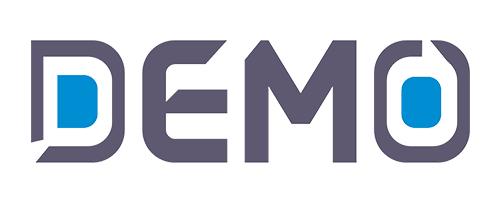Project Overview
During the last two decades the biggest business transformation was that digitalization has enabled new forms of collaboration and value-provision by transiting from individual enterprises to digital platform enterprises.
Resources are harnessed by opening the platform enterprise boundaries and providing an innovation space for third parties to create add-on offerings as well as through the exploitation of network effects.
In their global survey on platform enterprises (https://www.thecge.net/wp-content/uploads/2016/01/PDF-WEB-Platform-Survey_01_12.pdf) Evans and Gawer, identified 176 platform enterprises, who’s combined value exceeds 4.3 trillion USD and which directly employ about 1.3 million people. This means that with a little more than 1 million people they generate a value larger than the yearly GDP of Germany! 9 out of 10 unicorn firms are digital platform enterprises. However, 95% of these platform enterprises are located in China and the US, with best known examples being Alibaba, Amazon, Apple, Netflix, and Google. EU’s share in the platform economy is only 2 per cent (Dutch Transformation Forum, 2018).
During the last decade different start-ups have emerged in Europe as potential digital platform enterprises, showing technical leadership. However, those companies who have developed very successfully have sold a share of their business at early stages to US investors (e.g. UIPath in Romania, Dynatrace in Austria etc.). UIPath has then scaled up within 3 years to a 23 billion IPO in April 2021 at the New York Stock Exchange (https://www.businessinsider.de/gruenderszene/business/uipath-aktie-steigt-ipo/) .While technical competences and highly skilled young graduates are available, the European Commission’s Expert Group for the Observatory of Online Platform Economy, finds in their final report (https://digitalstrategy.ec.europa.eu/en/library/expert-group-eu-observatory-online-platform-economy-final-reports) that there are two main barriers in establishing successful platform enterprises in Europe: (a) risk capital, and (b) competences and skills in scaling up platform enterprises. Competences necessary for scaling up include a thorough understanding of digital product-service-systems, leveraging network effects and networks as an organizational form, harnessing communities instead of curating customers as well as optimizing the digital enterprise architecture to generate innovative business models. With the establishment of technologies like 5G and IoT, the market share of digital platform enterprises is expected to increase massively during the next 20 years (https://unctad.org/system/files/officialdocument/der2019_en.pdf)
In this context the DEMO project proposes the development of an innovative Digital Platform Enterprise Management Module aiming to equip future graduates with the necessary basic competences for scaling up technological European businesses.
Aims and objectives
The project general objective is to improve topical, methodical and intercultural competencies and skills of students for Digital Platform Enterprise management through the creation of an online learning environment with collaborative elements to support digital learning practices of Business Engineering, Computer Science, Information Systems and Business Informatics students in the context of Digital Platform Enterprise management and to establish a reference curricular framework for the modernization of higher education Master programs, addressing Digital Platform Enterprise management.
The project specific objectives are as follows:
Improving the topical, methodical, and intercultural competences and skills of 40 students for Digital Platform Enterprise management.
Creating an online learning environment, with collaborative elements, to support digital learning practices of Business Engineering, Computer Science, Information Systems and Business Informatics students in the context of Digital Platform Enterprise management.
Improve flexibility in individual learning pathways through blended mobilities for 20 students.
Establish a reference curricular framework for the modernization of higher education Master programs, addressing Digital Platform Enterprise management.
The following intellectual outputs, learning/teaching/training activities and multiplier events are to be developed/organized during the project lifetime
INTELLECTUAL OUTPUTS:
Report on literature on Digital Platform Enterprise education.
Training methodology for summer schools.
Training materials for Digital Platform Enterprise module.
Case studies.
Joint Industry-Academia Master Guidelines for Digital Platform Enterprise.
Digital Platform Enterprise learning and design tool.
Scientific/educational papers.
LEARNING/TEACHING/TRAINING ACTIVITIES:
Digital Platform Enterprise Summer School.
Digital Platform Enterprise Summer School.
MULTIPLIER EVENTS
Workshop in September 2022 - Title: DEMO Project: Improving student competences for the Platform Economy.
Workshop in November 2023 - Title: Results and contribution of the DEMO project to career chances for students.
FOR
Students
-
Improved alignment of professional competences with the requirements of the labor market and thus improved employability perspectives.
-
Better professional skills for applying co-design methods for creating innovative solutions/services/business models for digital businesses.
-
Better critical and creative thinking abilities by co-design practices.
-
Improved understanding of cultural diversity, better teamwork abilities and communication skills.
FOR
Teachers
-
Improved expertise in the fields related to Digital Platform Enterprises addressed by the project.
-
Experience with online coaching and tutoring for diverse/interdisciplinary groups of international students.
-
Better understanding of communication needs via online means for knowledge transfer as well as of cultural differences respectively perceptions.
FOR
Reasearch Community Stakeholders
-
Improved international institutional visibility.
-
Experience with blended mobilities in a transnational project.
-
Stronger international cooperations and knowledge-sharing between partners.
